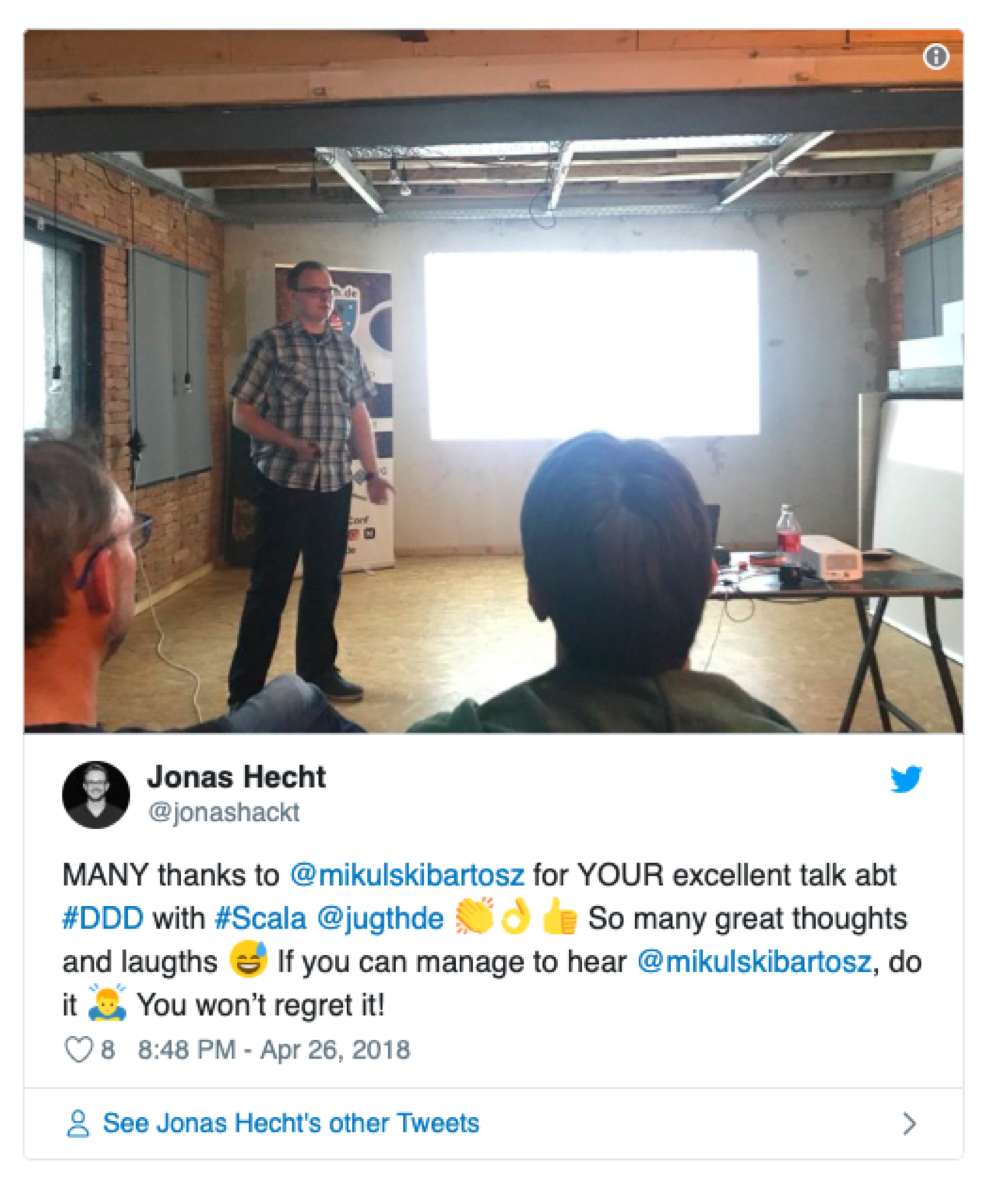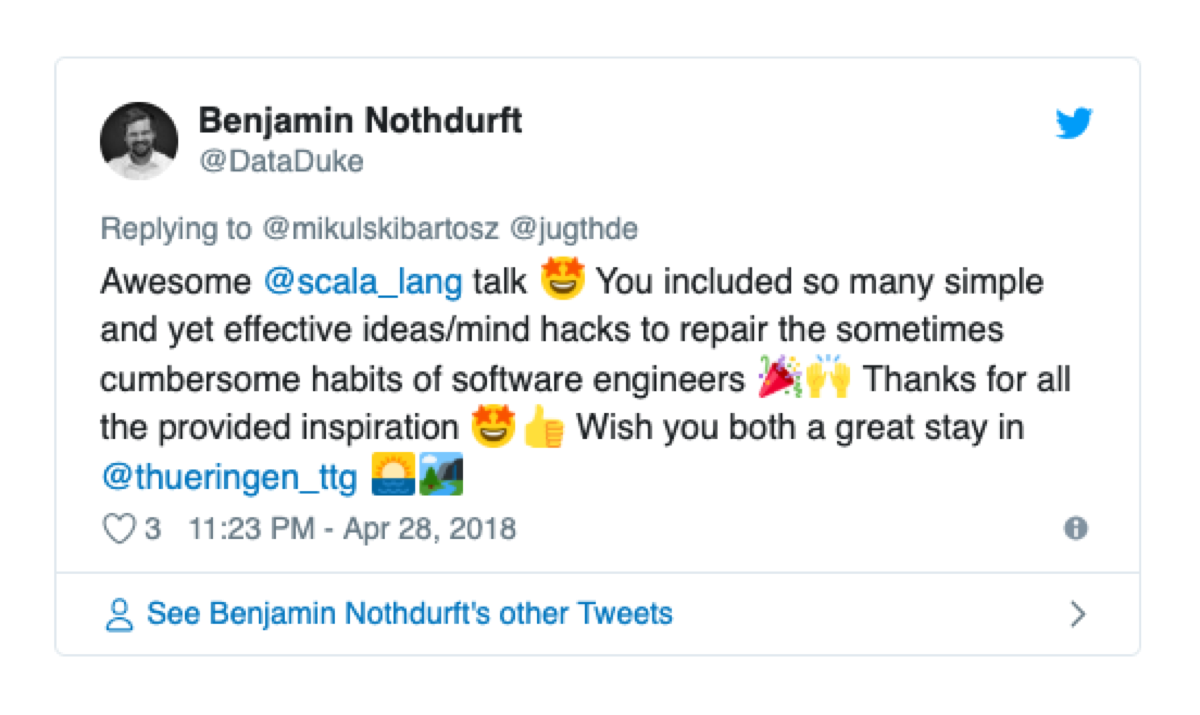The next month I start organizing another meetup group. I feel that I need to brush up my public speaking skills, so I watched the recording of my last presentation. This blog post is some kind of retrospective, a list of things that went well, and things that must be improved.
Table of Contents
How to speak at a meetup?
So you want to speak at a meetup or a conference. It does not matter why you want to share your knowledge, so don’t be ashamed of your reasons. If you think that the best way to learn something is teaching other people, awesome, that is the best way of learning, go and teach. If you believe that public speaking will give you some “corporate career points” and help get promoted, do it.
If you think people will not want to listen to you, you are wrong. You don’t need a lot of experience, you don’t need a blog or even a GitHub repository. All you need is something to share.
You may think nobody will invite you to speak at a meetup. That is actually true. If you wait to be invited, it may never happen. If you want to give a public talk, be proactive and ask the organizers. Seriously, all you need to do is to send a message to them and ask.
They will be happy if you want to speak at their meetup! I organize meetings of Poznan Scala User Group, and I know that finding a speaker is extremely difficult. Everyone who volunteers is highly appreciated.

What went well?
First of all, I think the attendees liked the content, people laughed, they were taking pictures, tweeting. Tweeting! For the first time, somebody tweeted about my presentation. Awesome!
It was the first time I was speaking abroad. It was the first time my presentation was recorded. It was scary… terrifying. Fortunately, I was speaking in a foreign language, so people were expecting mistakes. I was expecting mistakes, and it did not bother me at all.
It was a great learning experience and I am grateful for every opinion shared after the talk, every comment, and every tweet. I appreciate the professionalism of JUG Thüringen organizers and their willingness to help. I think I have learned something about organizing and advertising a meetup.

What went wrong?
My body language was terrible. Actually, the lack of body language was awful. I was standing in one place, almost not moving for thirty minutes. I probably should blame my way of practicing for that, because I sit, look at the slides and talk to the screen while practicing.
Unfortunately, I wasted an opportunity to say “I don’t know” and answered all questions. Sure, it is good to answer the questions and share your opinion when someone is asking about something. Why saying “I don’t know” would be a better option? At some point I may need to do that during a presentation in a less friendly place. JUG Thüringen was a very friendly place where I could practice doing it.
Last but not least, I feel that the ending of the talk was not “strong” enough. Instead of finishing with a story I summarized the talk using boring bullet points.
I speak too fast
Speaking too fast is my biggest problem during such meetings. I get nervous when I give talks like that, so I speak faster. After a few seconds I realize that I speak too fast and people probably cannot understand anything, so I get even more nervous and speak even faster.
I could not let it happen. That is why I printed three pictures of turtles and gave it to the audience. I asked them to “show me the turtle” every time I start speaking too fast. The fun fact is that nobody used the turtle during my talk or I was not paying attention to them at all.
There are some moments when I probably should have spoken slowly. Fortunately, not so many of them. I feel that I was more relaxed just by providing the audience an option to slow me down. The turtle worked even though nobody decided to raise their hands and show me the picture.
What needs to change?
I must use body language intentionally, know what I am doing, know what I want to do and have control over it. It is not enough to stand and make some random gestures. I probably should watch some political speeches ;)

